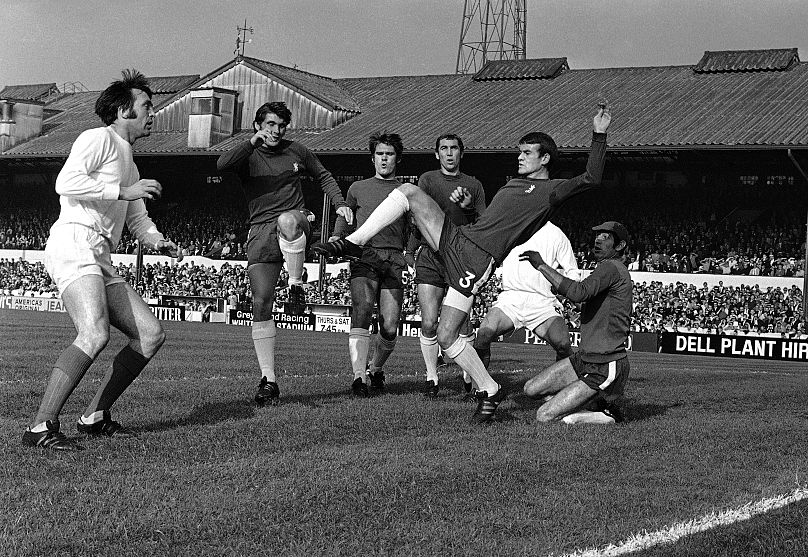New research shows that regularly heading football's can increase the risk of dementia
FOOTBALL NOW is a new show that brings to light some of the biggest issues, challenges, and debates within the global game.
 ADVERTISEMENT
ADVERTISEMENT
 ADVERTISEMENT
ADVERTISEMENT
In recent years, there have been several medical reports published that highlight the fact that football players are at a greater risk of developing dementia. The reasoning behind this is a subject of great debate.
Jeff Astle became the first British footballer to have been ruled by an inquest to have died, aged just 59, due to chronic traumatic encephalopathy (CTE), a type of dementia. In Jeff’s case, the low-level brain trauma was proved to have developed from the repeated heading of footballs.
One of England’s greatest ever footballers, Sir Bobby Charlton, has recently been diagnosed with dementia. Charlton is the fifth member of the country’s 1966 World Cup-winning side to suffer the disease.
As football is played by more people than any other sport around the world, understanding the long-term dangers of playing the game has never been more important.
What the research tells us
The University of Glasgow conducted a landmark study into dementia and football based on the health records of around 8,000 former professional players in Scotland. The findings showed that players were 3.5 times more likely to die of neurodegenerative diseases than men who didn't play professionally.
The results also showed that footballers are five times more likely to develop Alzheimer's disease. Defenders, in particular, are five times more likely than an average person to be diagnosed with dementia.
Another study by Liverpool John Moores University and the University of Keele looked into why football players have an increased risk of developing neurodegeneration.
The data gathered and the self-administered cognitive test proved there is a direct link between heading the ball and cognitive impairment, which is the first step towards a diagnosis of dementia. Davide Bruno, a reader in psychology at Liverpool John Moores University, explained, "Headers are at least one of the most important culprits because that's unique to football, and that's presumably what's increasing the risk."
The facts are clear, one of football's key practices is causing serious damages to its players. Jeff Astle's daughter and head injuries campaigner, Dawn, told Football Now:
After the inquest into her father's death, Dawn set up The Jeff Astle Foundation to raise awareness of the disease and some of the causes behind it. "I don't think current players are actually fully aware of the consequences, not just of the short term risks but the long term risks of repetitive head trauma", she added.
Results’ impact on football
Some countries have implemented certain measures to limit the risk of heading into their junior leagues. The United States has banned heading of the ball for under 10s. England, Northern Ireland and Scotland have brought in similar rules for players under 12 years old. New guidelines have been introduced for professional English footballers, limiting them to ten headers each week in training.
The Premier League is viewed as the most physical league in the world. However, according to Statsbomb, top divisions in Spain, Austria, Czech Republic and others average more headers than the EPL. But none of these countries seem to be taking enough action into preventing head injuries.
Inter Miami FC Academy Coach, Julius James, hopes to see the industry address this issue more, “I want to implore top professionals to come in to have conversations with the footballers, have conversations with the coaches and do more testing.
The restrictions on heading put in place in the United States and the United Kingdom appear to be a step in the right direction, but as more research is done, will more countries take measures to reduce heading in football? Get in touch using the hashtag #footballnowdementia.












